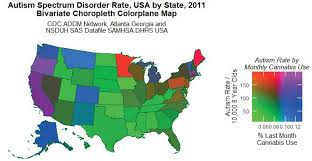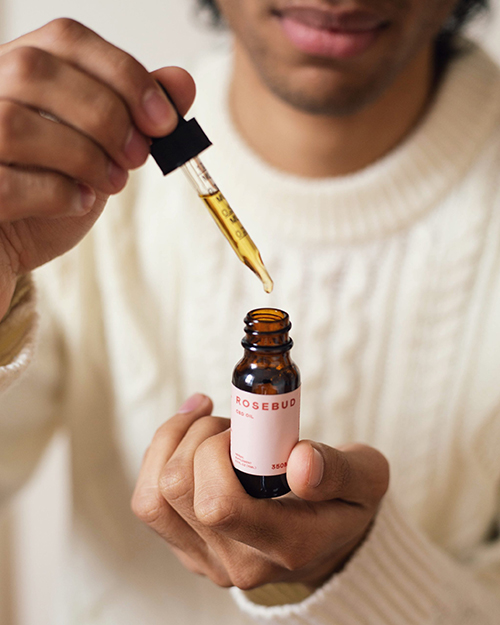
Perhaps you are wondering "When was Colorado able to legalize marijuana?" It is true that marijuana was not legalized in Colorado until 2016. However, the state did allow marijuana sales to be legalized in 2014 as well as in 2016. This article will give you the facts. It is worth reading the whole story to understand the facts.
2014
It was a long and difficult journey, and legalization of marijuana has its own challenges. First, there is the cultural aspect. Cultural. Marijuana had been illegal throughout most of human history. To bring it to the state's adult-use marketplaces requires cultural change. Colorado faced opposition from many groups, including law enforcement and health professionals. Colorado has a polarized political climate, which means that opponents of controversial change often win.
Amendment 64, legalizing marijuana in Colorado, was passed by Colorado voters in November 2012. It allows adults to grow up to six marijuana plants and allow them to possess them. Adults over 21 can now have up to one ounce marijuana derived from those plants. It also allows them to give up to one ounce of marijuana as a gift.

Marijuana legalization in Colorado has brought in a lot of revenue. According to the state government, marijuana taxes bring in $247 million annually. Since legalization, Colorado's marijuana industry has thrived. Some people, however, are skeptical and fear that legalization could lead to more criminal activity.
Positive marijuana test rates increased after legalization. The state's marijuana law has made it harder to find employees to meet the growing demand. Colorado has witnessed many deaths from marijuana over the years. In one instance, a father shot his wife after she consumed marijuana edibles, while another death involved a young man visiting Colorado with his family. A large number of traffic fatalities were also due to marijuana use.
In 2016
Amendment 64 was approved in Colorado by voters. It legalized recreational marijuana in November 2012. As of January 1, Colorado residents can now possess up to one ounce of marijuana, grow up to six plants at home, and give up to one ounce of it as a gift. They must be at least 21 years old, however, and cannot use marijuana in public.
The legalization of marijuana has brought about some problems. First, the law contradicts federal law, which continues prohibiting marijuana use. Additionally, it creates risks for businesses and consumers, since marijuana bought in Colorado can be diverted to neighboring states where it is still illegal. The court has been asked to reject the case by Donald B. Verrilli Jr., Solicitor General.

Colorado has seen a significant rise in the number and types of marijuana parcels that are being sent to them since the law was adopted. The state's postal system saw a 1,042 percent increase in marijuana parcel seizures between 2013 and 2017. Legalization has made marijuana more readily available. While some people might still have a negative opinion of cannabis, they're much more likely to support legalization.
Teenagers are at greater risk from using marijuana. Little children are increasingly susceptible to marijuana poisoning. However, overall poisonings related to marijuana remain low. In 2015, 47 calls to Colorado poison control centres were made. This is an increase of zero just a few short years ago. Additionally, there is an increase in adult emergency room visits. This is due to more tourists reporting adverse experiences with marijuana.
FAQ
What CBD products are the most popular?
CBD products can be found all over these days. CBD products are popular for their ability to relieve pain and anxiety. This market is large and growing quickly.
But why do people purchase CBD? And what does it mean for you, as a brand owner?
Statista reports that CBD products have relaxing properties. They are also bought for their anti-inflammatory qualities.
This means that if your product has both CBD and THC, then it can be sold for both recreational and medicinal purposes.
But what about brands who are focused on one purpose only? For example, if a company sells CBD for stress relief, then it won't have much competition.
A brand that focuses on CBD for medicinal purposes will also have a large customer base.
However, a brand that wants to target recreational customers must develop a unique selling message (USP). A USP is essentially a benefit or feature that distinguishes a brand from its competitors.
For example, some brands offer shipping free of charge, while others offer discounts when you order in bulk.
Is CBD a good company to invest?
As hemp-based products gain popularity, so does the market. According to some estimates, there will be 1 billion dollars worth of hemp-based products in stores by 2022.
Market growth is expected at an annual rate in excess of 20% up to 2020, when it will reach $2.5Billion.
Hemp oil can be found in many beauty and health products, including lotions, shampoos and lip balms, moisturizers and body butters.
Many companies also make CBD-infused snacks, pet food, treats, and other food products.
CBD is legal in all 50 states. However, this could change very soon. CBD is legal in all 50 states, but more research will be conducted to determine its potential uses. Businesses will have an easier time operating legally.
These are all factors that make CBD investments a viable venture.
Where can I purchase CBD products?
CBD can be purchased online or in local shops. Online retailers tend to offer better deals. Many websites will sell CBD products that contain industrial hemp. It contains less than 0.3% of THC.
If you prefer shopping locally, consider brick-and mortar businesses that are focused on CBD products.
A lot of states have passed laws that allow consumers to purchase CBD products without the need for a prescription. If you live in one of those states, you may be able to buy CBD products at your local pharmacy.
CBD products can be delivered directly to your front door.
Statistics
- HR −16 mmHg; 95% CI −26, −6; I2 = 92%) (ncbi.nlm.nih.gov)
- however, one study also found that these effects were virtually abolished when the original media (a nutrient broth agar) was replaced with one containing 5% blood (increasing the minimum concentration to ~160 μM CBD) [179]. (ncbi.nlm.nih.gov)
- While the primary injury may not be treatable, interventions that attenuate secondary sequelae are likely to be of benefit [203].Only one study (ncbi.nlm.nih.gov)
- As a substance that was federally illegal before the passage of the 2018 Farm Bill, hemp-derived cannabinoids with no more than 0.3% THC still face a regulatory grey area. (forbes.com)
- A recent study [161] also found that in vitro CBD treatment (i.e., ≤ 2 h exposure to 10 μM) induced ~40% vasorelaxation in isolated (pre-constricted) (ncbi.nlm.nih.gov)
External Links
How To
How to Sell CBD Products in the United States
CBD (cannabidiol), is one of the 100+ cannabinoids naturally found in cannabis plants. It's non-psychoactive and doesn't cause "high" like THC (Tetrahydrocannabinol). CBD oil is made from hemp. It does not contain THC, unlike marijuana where there can be a wide range of THC levels.
Research shows that cannabidiol helps to treat anxiety and depression. CBD is legal nationwide in most states, though some restrictions apply. Find out if CBD is legal in your area.
The first step to selling CBD products is choosing what kind of product to offer. Start with tinctures and then move on to creams, oils, salves, or topicals. Or, you could make your own personal care products like lotions or lip balms. No matter what you do, there is a growing demand to CBD products made from whole plant extracts. Continue reading if this is what you want to do.
There are many different types of CBD products available on the market today. Every type works differently depending how it was extracted, processed, or manufactured. Here are some of the more popular options:
-
Topical - This involves directly applying CBD to the skin. Topical CBD has a faster rate of absorption than CBD oral. It takes longer for topical to reach the bloodstream. To treat inflammation and pain, topically applied topical products are better suited for general wellness than for general treatment.
-
Sublingual - A drop of CBD liquid is put under the tongue for 60 seconds, before being swallowed. Sublingual is often claimed to be the fastest route for CBD absorption, but there are disadvantages. First, since it's absorbed by the oral mucosa instead of the digestive tract, it won't enter the body quickly enough to relieve acute symptoms. Second, it has been shown that only 10% of the dose reaches the bloodstream. It can be difficult for you to calculate the exact dose using this method.
-
Oral Spray/Gum uses drops of CBD dispersed in a carrier oil, such as sublingual. CBD can also be applied under the tongue, or chewed with gum. These methods work well for quick relief but aren't recommended for long-term use due to their slow rate of delivery.
-
Vaporizer Pens (CBD isolate or wax heating) - These devices create vaporized hemp CBD. They are generally more effective than either smoking CBD flowers or taking CBD capsules.
-
Find out what legal issues may impact your business
If you plan on operating an eCommerce platform, you will need to consider whether your business will operate legally throughout the United States. CBD products are regulated in the United States by the Drug Enforcement Administration. They are classified as Schedule I substances. CBD products can't be sold without a prescription.
Each state has its own CBD laws. New York City, California, Massachusetts, Michigan and Rhode Island have legalized medicinal marijuana. Others, including Oklahoma and Tennessee, have legalized CBD oil from hemp. There may not be any legal issues for CBD products that you are selling in these states. If you reside in a state where cannabis is still illegal, it's advisable to consult an attorney who specializes in cannabis law.
-
You should create a plan for marketing
Once you have decided what product to sell, it is time to decide how you will promote it. There are several ways to do so. You could:
Start an eCommerce Platform. You may already be familiar with selling online. Many platforms make it easy for you to start your own shop. One popular option is Shopify. Shopify allows users to create and market an online shop and promote it via email marketing and social media.
Hire an expert online marketer. It can be time-saving and cost-saving to hire someone to manage an eCommerce site if you don't know how it works. You should look for companies that offer SEO (search engine optimization), and PPC (pay per click) services.
If you are looking for a payment processing company, make sure it offers all the security features required. Some processors may require customers to verify their identity before they process payments. This is to prevent fraud. You also have the option of using Stripe, Square and Dwolla.
-
Get shipping options set up
Shipping costs can add up quickly when you run an eCommerce store. This problem can be avoided by finding a provider that offers free shipping if your order exceeds $100. Many companies also offer flat-rate shipping, regardless of order amount.
-
Decide if you will sell products directly via Amazon
Amazon is a well-known online marketplace that offers hundreds of thousands items. Amazon does not allow sellers to ship directly from their site to customers. Instead, sellers must use third party service providers. You are responsible for customer orders when you sell on Amazon. In return, Amazon charges fees for fulfillment, storage, and delivery.
-
Find a Way to Track Sales and Customer Feedback
To ensure your success, you must provide feedback to your clients. Google Analytics is a good place to get started. You can track sales and traffic with this tool. It shows you the origin of your visitors and the keywords that they used to search for it.
-
You might consider selling your own brand of CBD Oil
It is possible to make your own CBD products and make a profit. You can personalize your CBD products to meet your individual needs by creating your very own line. Because you don't share profits with others, you can charge higher prices than any other retailer.
-
Add Discounts and Promotions
People love to save money especially when it involves health care. Promos and discounts are great ways of increasing sales. They encourage people buying your products.
-
Use Social Media to Market Your Business
Social media is an effective tool to promote your company. Facebook, Instagram. Pinterest. LinkedIn. YouTube. These sites are filled with potential customers who may be interested. Your posts should be relevant, engaging, and interesting.
People love to try new things. If you are careful not to overdo it, offering samples and coupons can increase sales. Just be sure to clearly explain how much each sample costs.
Mobile devices are becoming more popular for accessing the internet. It is important that your website works with tablets and smartphones. People who can't view your site on their mobile devices or tablets will leave the site and go somewhere else.